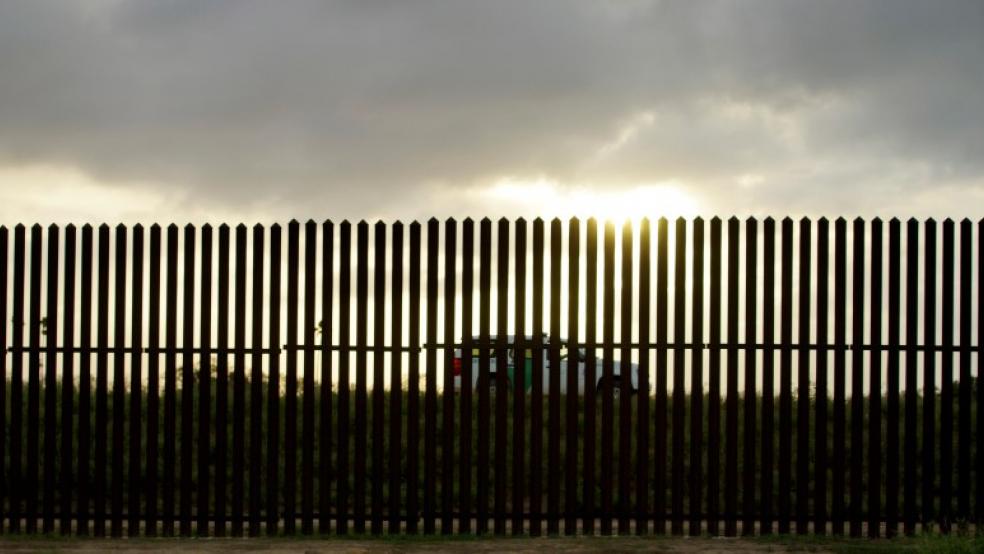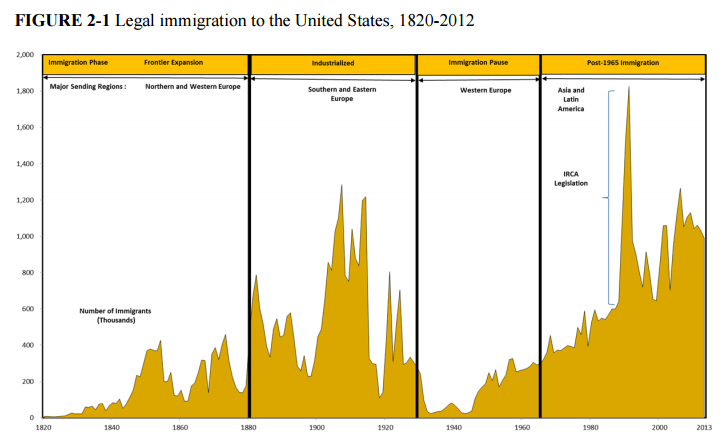At a time when immigration is a major issue in the presidential campaign, one of the central concerns many voters have is the impact it has on jobs and wages.
Advocates of stricter controls make what seems to be a self-evident point: more workers looking for jobs leads to lower wages. Those in favor of a more liberal immigration regime argue that increased immigration is good for the economy and ultimately benefits everyone, both immigrant and native-born.
Related: Trump Dealt Himself a Losing Hand With Fiery Immigration Speech
On Thursday, a major study by the National Academies of Science, Engineering, and Medicine shed some light on why the argument over the impact of immigration on the economy is so difficult to resolve. In short, it’s because both sides are right. But they are using very different timelines to assess what immigrants do to the job market and the economy in general.
The study acknowledges that in some cases, an influx of immigrants can cause real, though usually short-term, damage to the prospects of the native born.
“When new arrivals compete with those already in the labor force—for example, if unskilled immigrants and native-born teenagers (or earlier immigrants) are applying for the same fast food restaurant jobs—wages and job opportunities for the latter may be negatively impacted, at least in the short run.”
At the same time, the study finds, consistent economic growth, particularly in a country like the United States, effectively requires a steady flow of immigrants. “Long-run growth requires infusions of labor, various forms of capital—both physical and human capital—and technology. Given native fertility rates and age profiles in the United States and in many other industrialized nations, immigrants are the most likely candidates for generating net labor force growth. Likewise, they contribute to capital formation and innovation, which also shapes the way and the pace at which growth unfolds.”
But the study also offers some insight as to why the issue remains such a point of contention in national politics.
Related: Where Does Trump Really Stand on Immigration? RNC Chief Can’t Say
One finding is that “there are larger negative effects on native wages from immigrant inflows in the short run (i.e., in studies of the immediate impacts of abrupt immigrant inflows or in which inflows are observed over shorter periods of time, or in the case of the structural studies, when capital is assumed fixed). Estimated negative effects tend to be smaller (or even positive) over longer periods of time (10 years or more) or in the case of structural studies, when capital is assumed to be perfectly flexible.”
A calculating politician will always recognize that a struggling worker who thinks his wages have been hurt or his job prospects diminished by immigrants isn’t going to be receptive to promises that the economy will be better for everyone in 10 years’ time.
The 550-page report combines the insights of more than a dozen leading economists who specialize in the impact of immigration, and is upfront about the difficulty of coming to absolute certainty on its effects.
“The definitiveness of the panel’s conclusions is tempered by the fact that measurement of the impacts created by flows of foreign-born individuals into labor markets is difficult,” the authors warn. “The effects of immigration have to be isolated from innumerable, simultaneously occurring influences that shape local and national economies.”
It’s the kind of honesty about the ability to analyze highly complex systems that one expects from honest researchers, but that rarely finds its way into political discourse.






